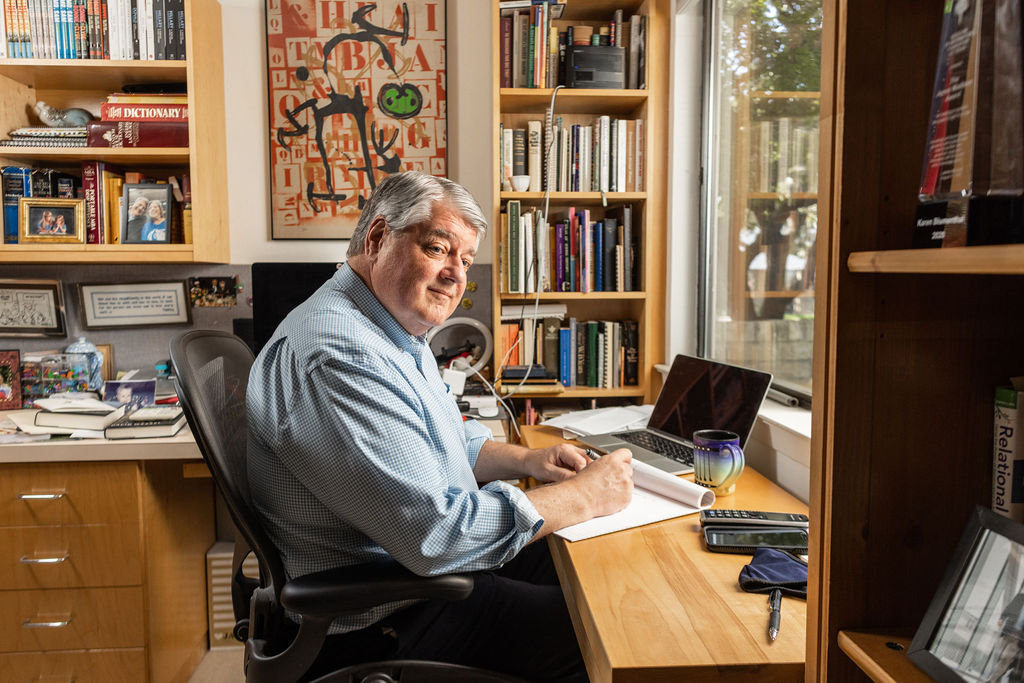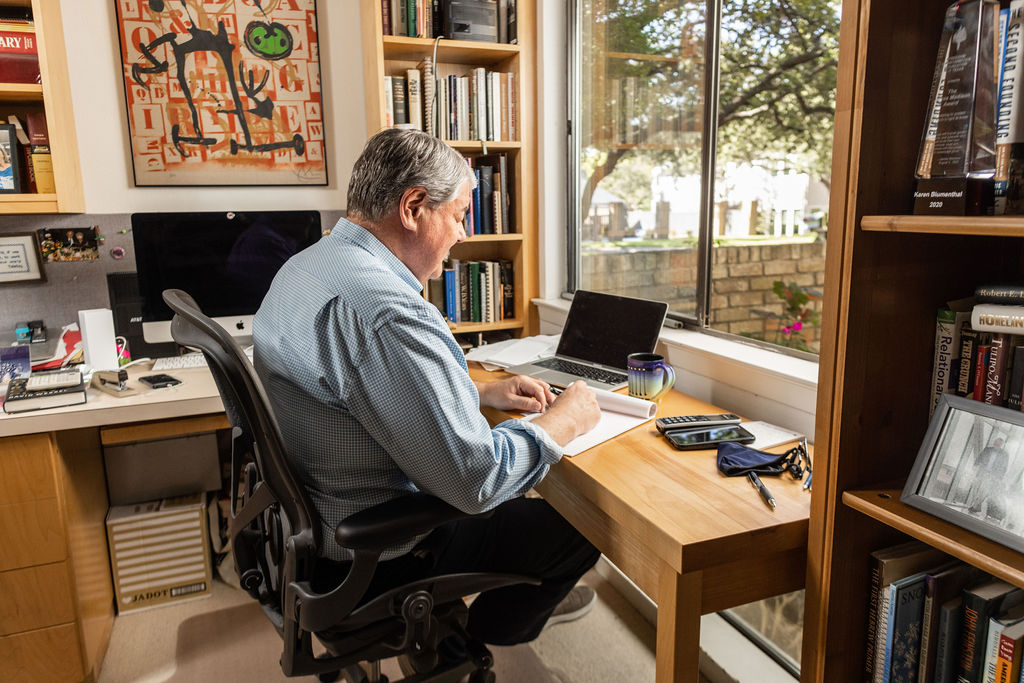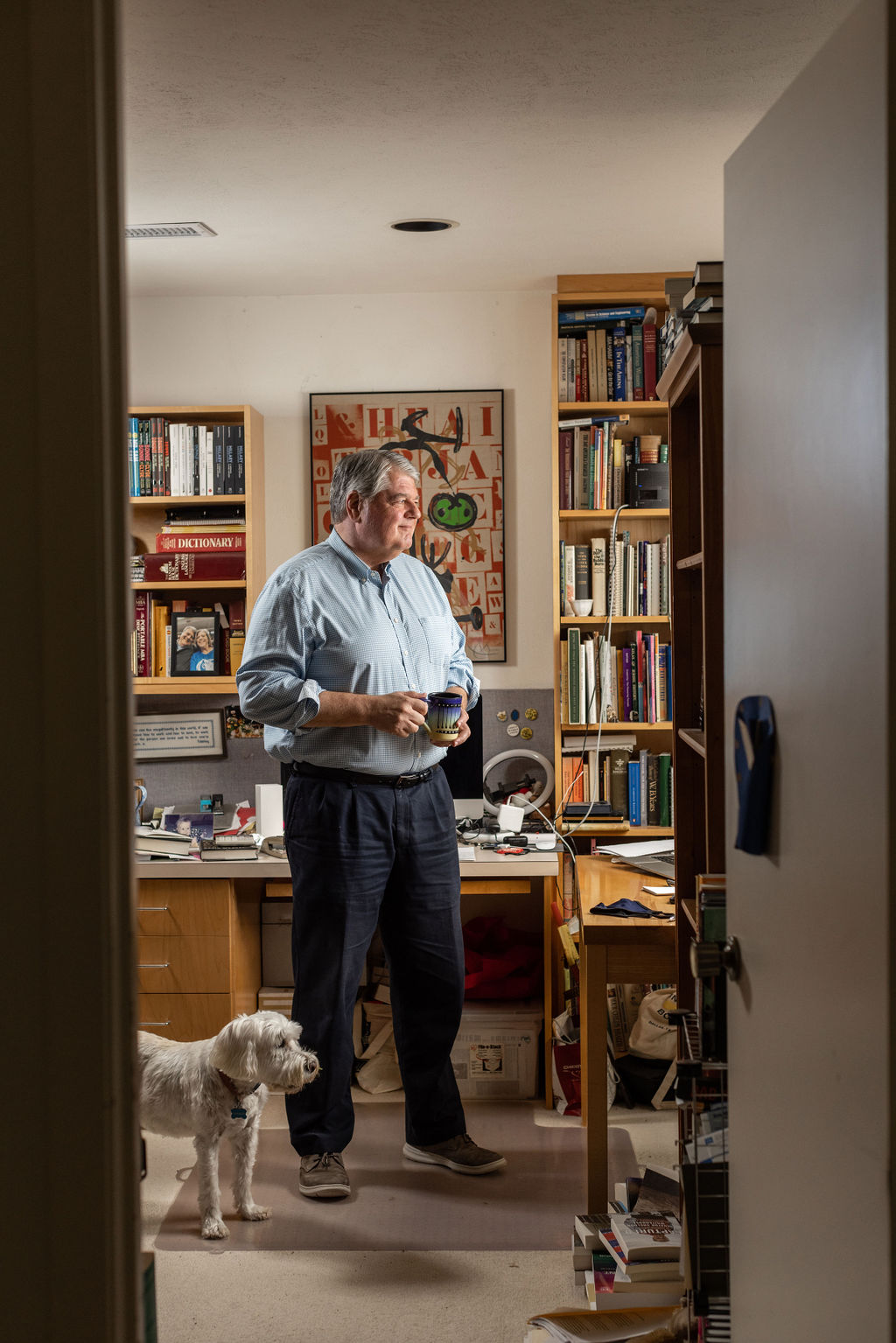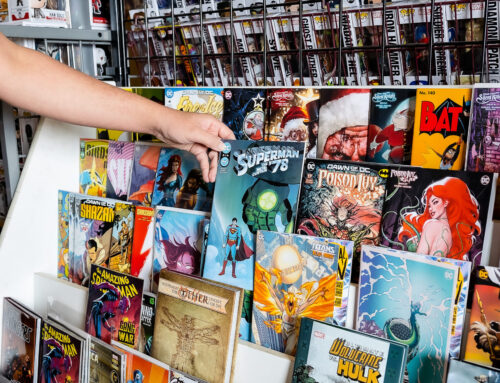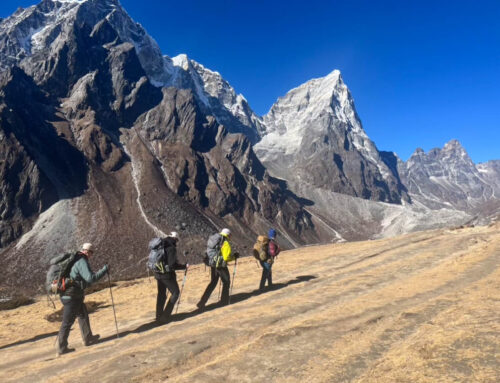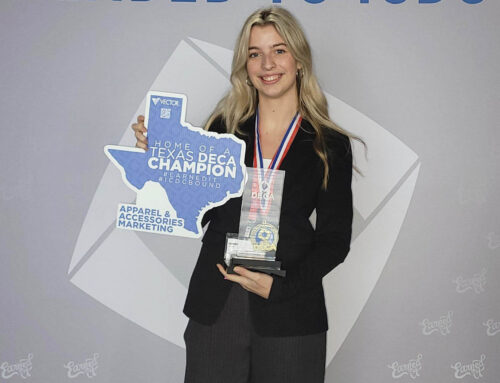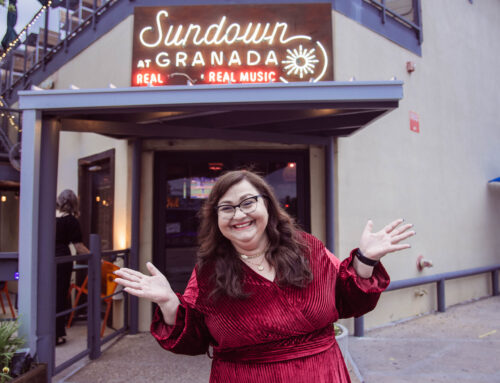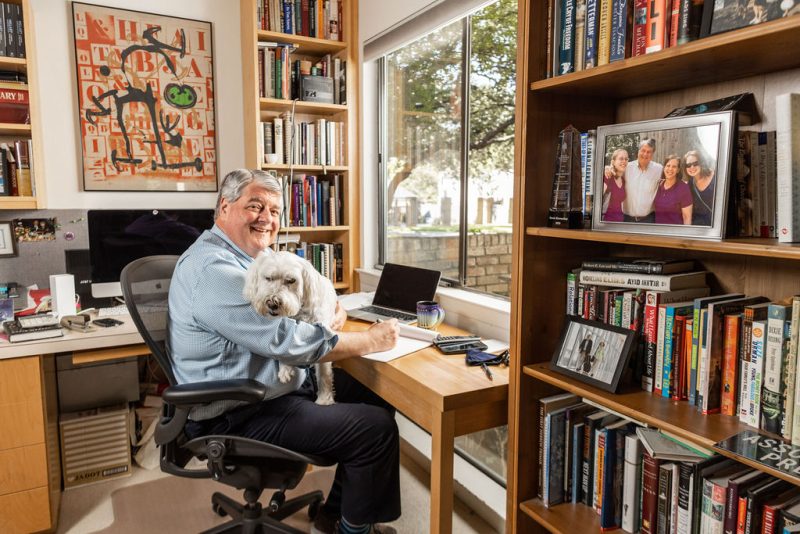
Photography by Kathy Tran
Theirs is a tale of two brilliant people whose respect for one another trumped their individual competitive drives. Their story includes funny anecdotes and inspirational triumphs as well as tragedy and heartache. In May 2020, she — financial reporter, young-adult nonfiction author, educator and beloved neighborhood philanthropist — died suddenly at 61, leaving McCartney and two daughters to grapple with the loss and her unfinished business.
How did you and Karen find each other?
I grew up in Boston, and we met at Duke University. Karen gave me my first assignment at The Chronicle, Duke’s student newspaper. We loved working together, and we did it a lot — at The Chronicle, at The Wall Street Journal and later teaching a class together at Duke right before she died. She was a year ahead of me, and she returned to Texas after graduating to work at theDallas Morning News. I followed her and joined The Associated Press, where I worked for 11 years.
There’s a story floating around about how she ended up at the Dallas Bureau of the Wall Street Journal with you, and I think it tells us so much about your relationship. Would you share that?
Karen had left the Morning News for The Wall Street Journal and after a few years returned to DMN as business editor. That’s when the Journal hired me. So, I broke a huge story about a Dallas company — the source called our house, Karen answered, and they asked to talk to me. This was a huge, front-page feature, and I worked on it all day while she took our girls to Janie Christy’s Dance Recital Day. Karen knew what I was working on, and she couldn’t do a thing about it. I finished the story at 10 p.m. and found her sitting in our living room, staring straight ahead, arms folded. We ended up staying up all night talking, trying to figure out what we were going to do.
I went into the office the next day, and everybody was high fiving, and I went to the bureau chief and said I needed a different beat, one that didn’t involve Dallas companies, because I wasn’t going to compete with my wife. The Journal’s managing editor responded by offering Karen a job. It wasn’t the easiest choice for her to accept. She was very loyal to the Morning News. I am sure it also was strange for the people who worked for us. It turned out a little like a mom- and-pop bakery — like, “OK, you edit the story and I’ll pick up the girls. I’ll take care of this, and you make dinner.” And it was really convenient for us to divide up duties like that.
How did you wind up on the travel and flight beat?
My first break was as an intern at the Morning News, the first time I ever spent in Texas, and it was the air traffic controllers’ East Coast Strike in 1980. I was totally into it, and nobody else on the city desk really cared. It turned into a huge deal. Reagan fired (the strikers), and you had this huge travel disruption of all these controllers not working.
Photography by Kathy Tran
Why does airline stuff fascinate you?
Airlines are enormously complicated, and it is a tough, challenging business, and it’s one readers care about passionately. And there are so many aspects to it — operations, storms, fares, frequent flyer programs, feeding. You name it. It’s also a huge part of the pandemic story.
What has the pandemic meant for industry sub-plots?
When there’s war, when there are outbreaks of viruses, when there are storms and disasters, travel is always a big part of the story. I’ve had to almost become a medical reporter, looking at ventilation, aircraft cabins, viral transmission, the rights of travelers — it’s all part of what I write about. Business travelers aren’t traveling as much now, and that has huge implications. One of my concerns is that flying is a very stressful activity, and the pandemic-related changes have led to angry travelers, confrontations, and I am afraid one long-term result is it’s going to become more stressful and difficult.
You’re a pilot, too. Personally or professionally, how much interest do you have in space travel?
I got my pilot’s license, and I love flying, but I do not feel the urge to go to outer space, personally.
So you raised your girls in Lake Highlands. Did you ever miss Boston or consider something closer to Wall Street?
We moved to Lake Highlands from East Dallas in 1994 and love it dearly — the strong community spirit, the diversity, great schools, great friends and the neighborhood feel in the heart of the big city. We had multiple opportunities to go to New York. We just didn’t want to raise our kids there. Both went to Moss Haven Elementary and Forest Meadow Junior High, then Hockaday. Their second home was the Janie Christy School of Dance in Lake Highlands, and they remain close to Ms. Janie.
And I hear, like their parents, your daughters are making names for themselves.
Our youngest, Jen McCartney, is a writer in Los Angeles, working as a staff writer on an animated Hulu show called Solar Opposites. She’s worked on several shows — a Netflix comedy called The Big Show, the Fox sitcom LA to Vegas and The Soup with Joel McHale on E!.
Her sister Abby McCartney is a legislative aide to Sen. Elizabeth Warren, working on education and child care policy issues. Before that, she was executive director and co-founder of the nonprofit Camden Enrollment.
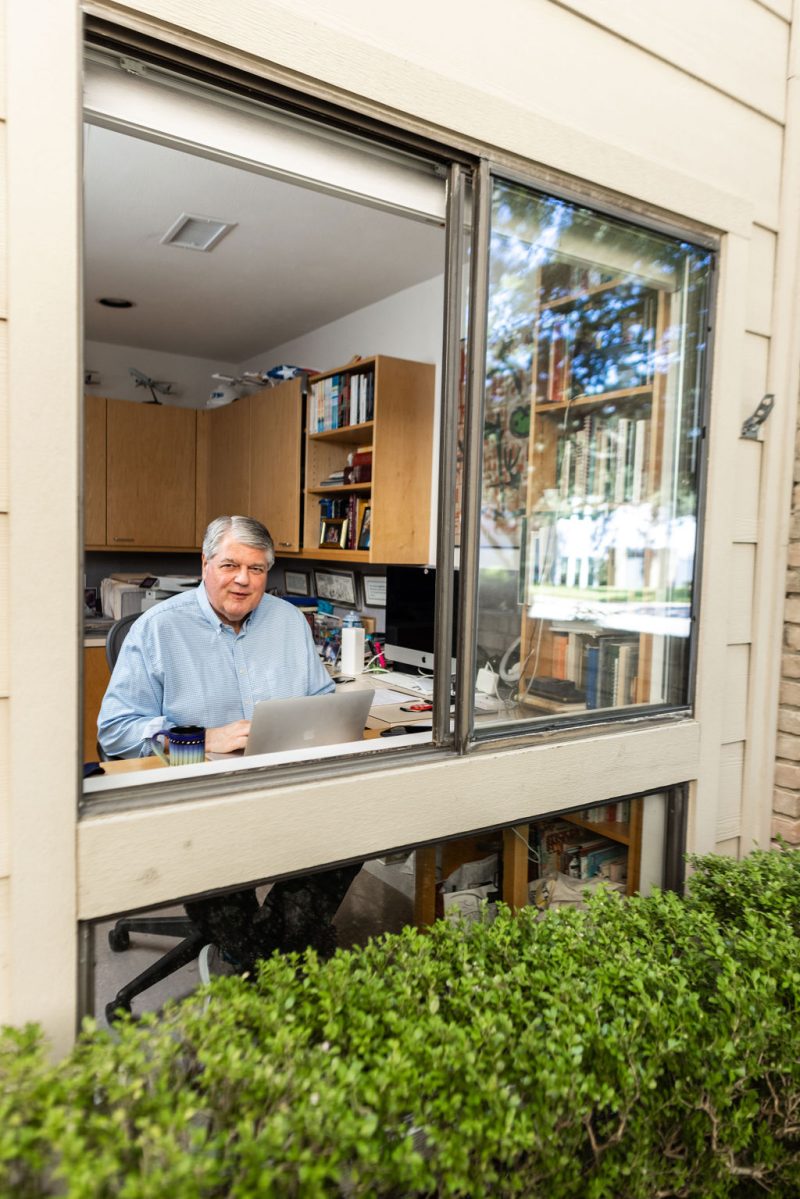
Photography by Kathy Tran
Your wife wrote your Wall Street Journal Middle Seat column one day. Why was that, and how did it go?
The Journal’s editor-in-chief, Matt Murray, we both know well. One day he said, “You write about other people’s travels all the time. I’d really like to read about how you travel, and I’d like Karen to write it. So I told her, and once she stopped laughing, it turned out she had been saving anecdotes, gathering string and had a lifetime of material ready to go.
And she did it beautifully. She exposed all my quirkiness, whatever. And I’m so grateful because it was a wonderful experience. And for a while every interview I would go into with a travel company or airline executive, and they’d say, “your stuff is good, but we just loved hers.” Another aspect of it was, we went to Love Field with a Journal photographer and he took these great pictures of us, and I am so grateful to have those because she died nine months after. I had this crazy collection of hotel pens from my travels, and she had whispered to me that she was going to expose my hotel-pen fetish, and I just cracked up, so there’s this one picture where I have this huge laugh on my face. Really nice picture.
Karen wrote books for young people about Roe v. Wade, Hillary Clinton, Steve Jobs, and Bonnie and Clyde, to name a few, and she also was a champion of Dallas libraries. What is her legacy?
The most important thing to her was helping young people understand this very complicated world. And she did that in her books, and she did that with her library work, with her teaching and mentoring — she tutored kids at Moss Haven and Forest Meadow — that was really what motivated her most. Her daughters — much of what is important to them, they got from her. Abby’s expertise is with early childhood education. Jenny is the creative writing side, and I’m biased, but I’m just very proud of both of them making a difference in the world.
How are you, Jenny and Abby coping?
We are heartbroken, shattered, but there has been a lot of work to do to finish all the things Karen started, like the Forest Green Library in Lake Highlands. She held that first fundraising meeting at our dining table, trying to raise $85,000, and then she died, and so the girls and I thought, “We need to finish this for her.” Her friends stepped up — Moss Haven Moms, the book clubs, and they formed this committee and they raised $108,000. And this is an extraordinary library with all these technological innovations — the only library with virtual reality goggles.
It has helped us, helped us feel Karen’s presence. It was bittersweet because she wasn’t there to see it, but it was more sweet than bitter because it really is beyond what she dreamed and hoped for.

